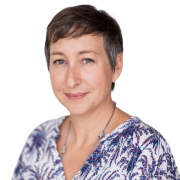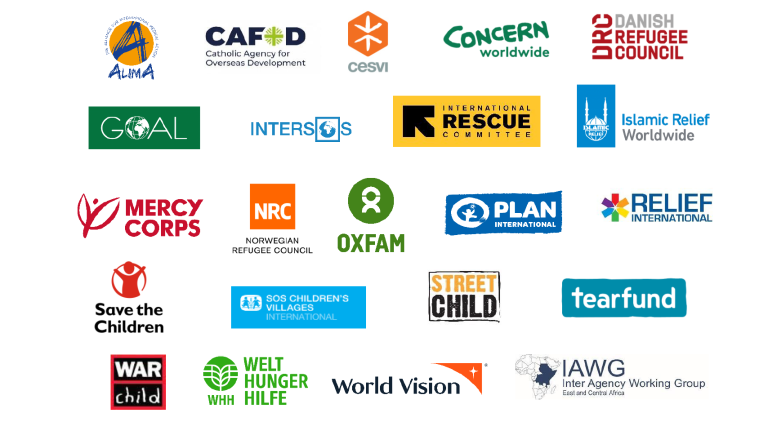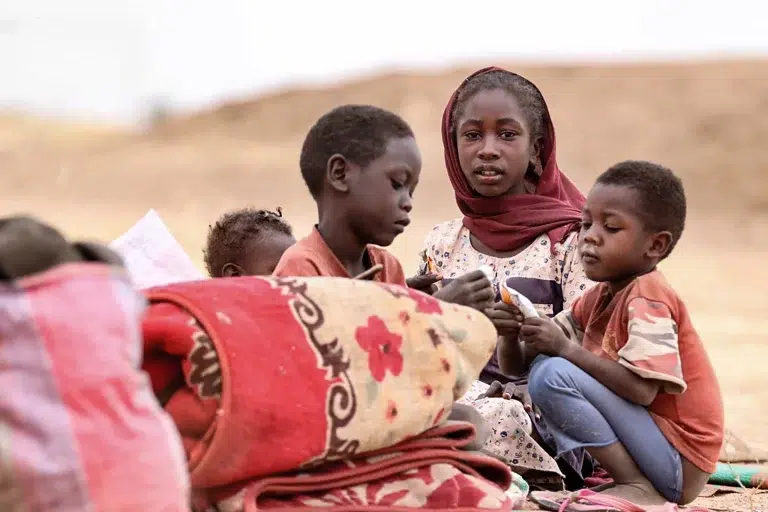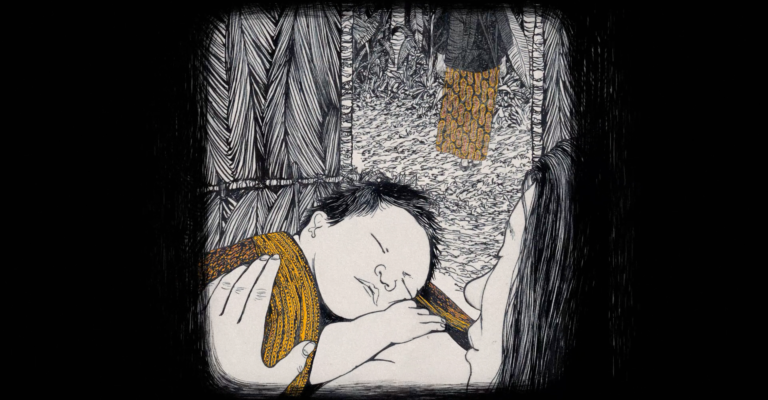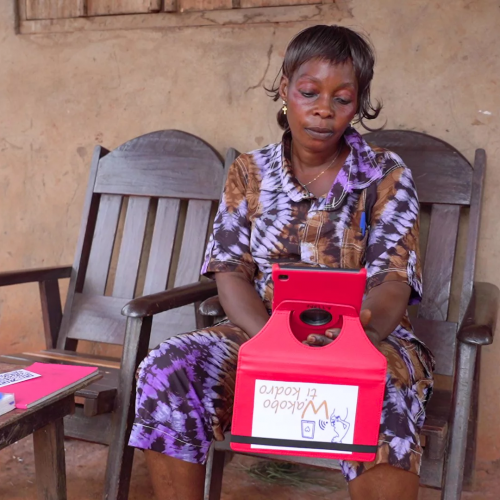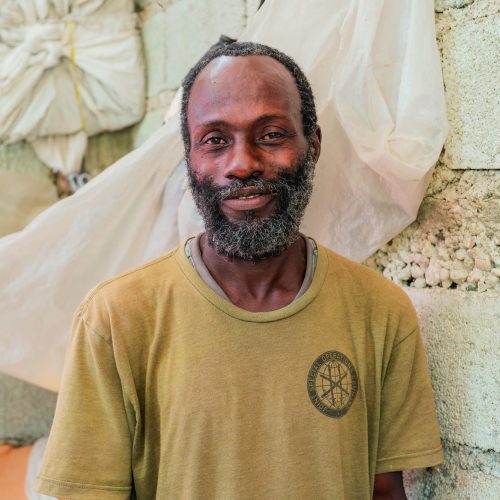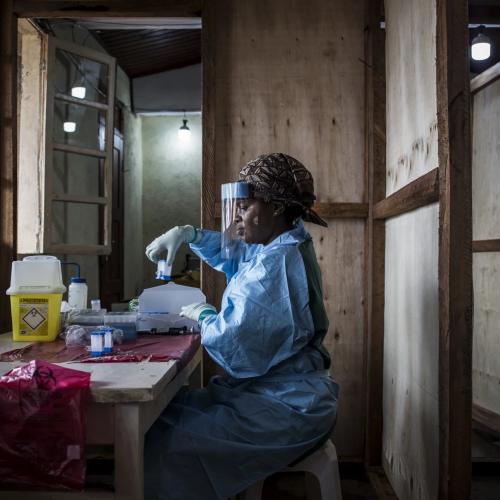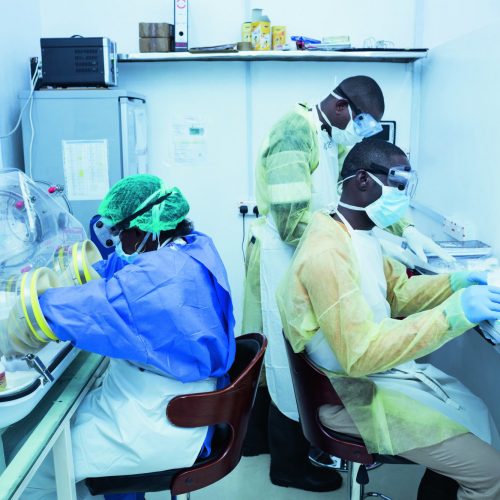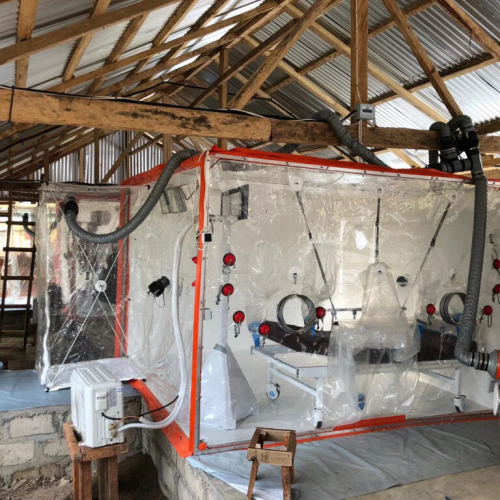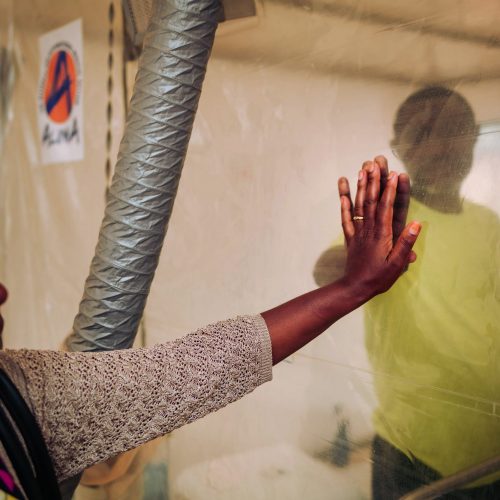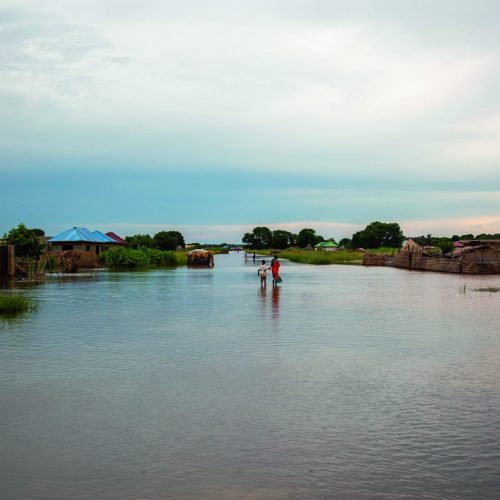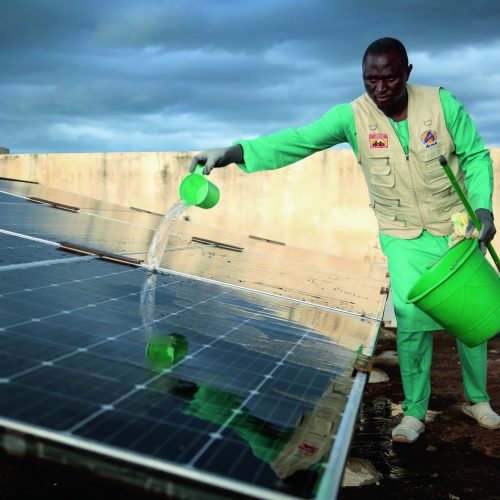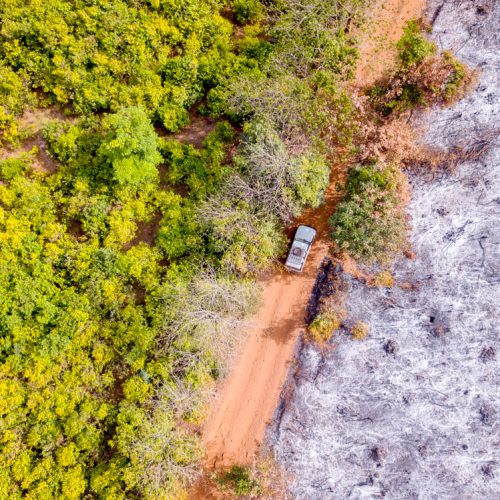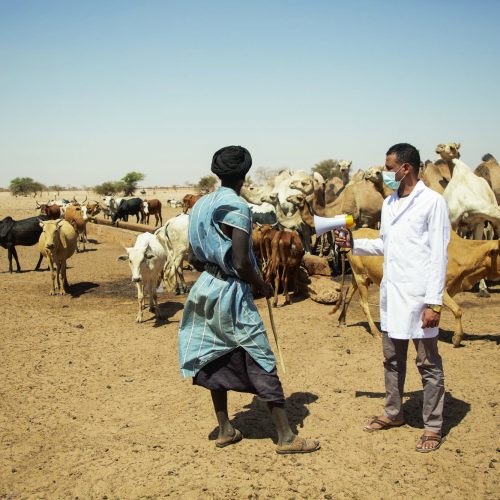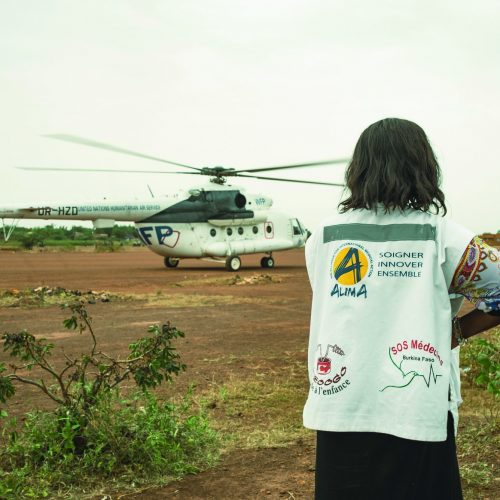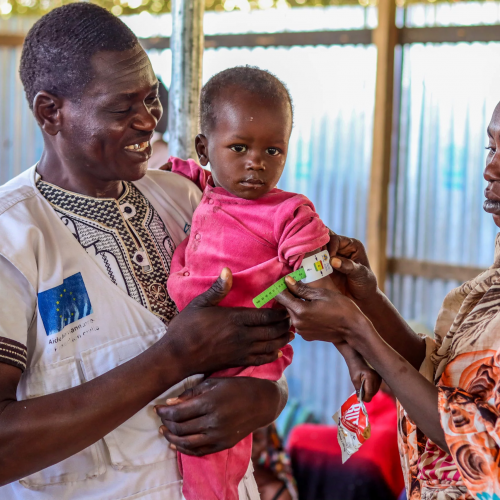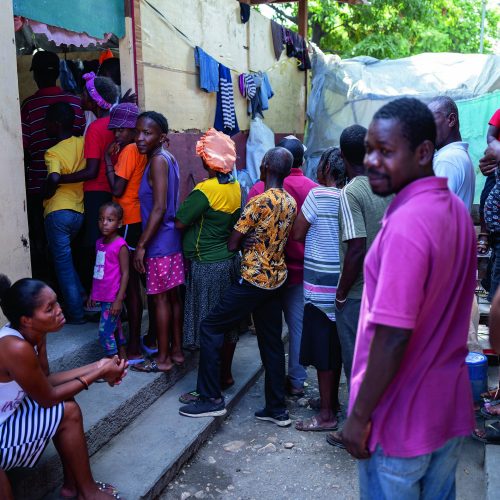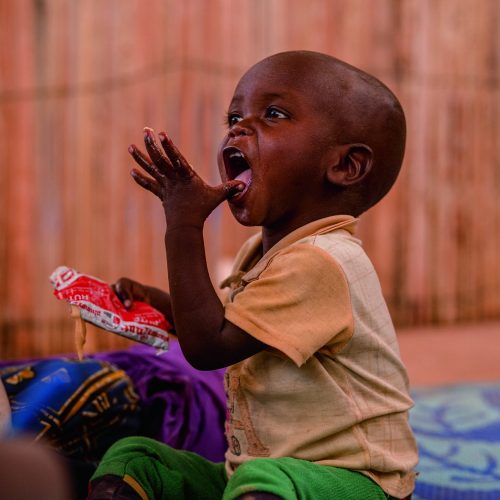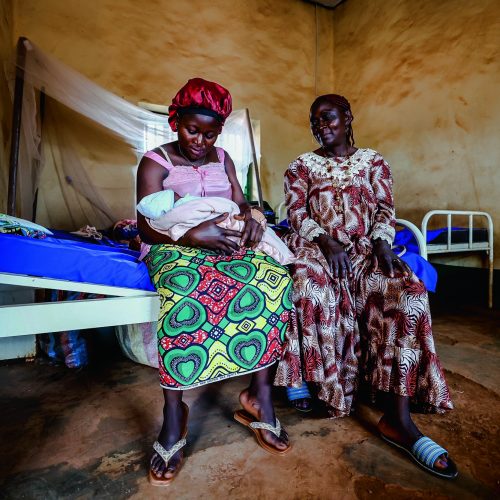“We are admitting new children every day,” said Doctor Karim Assani, a pediatrician at the N’zerekore Regional Hospital working with ALIMA. “Many of them are severe cases, suffering from complications.”
ALIMA has been supporting the N’Zerekoré Regional Hospital to take charge of severe cases, free of charge. The children are treated in one of two isolation tents that ALIMA set up on hospital grounds.
ALIMA is also supplying health clinics in the area with treatment kits for the management of simple cases, and supporting health centers in the district to monitor the evolution of the outbreak, as well as the referral of complicated cases to the hospital.
Eighteen-month-old Mohamed is just one child who has been received by the ALIMA team. Doctors say he was admitted to the emergency room in “very critical” condition, with advanced measles and suffering from severe acute malnutrition.
“My child was very sick,” said his mother, Fatoumata Camara. “He was no longer eating and I was very worried, thinking he was going to die. I brought him to the hospital and now my child is almost cured,” she said. “He smiles at me and soon we will be discharged.”
Since January, ALIMA has treated more than 50 complicated measles cases. Doctor Assani said medical teams successfully treated 94 percent of the children who were admitted to the hospital. Measles is one of the leading causes of death among children under the age of five. Complicated measles cases can have a mortality rate of around 15 percent.
Measles is a highly-contagious virus that affects the respiratory system and mainly affects children under the age of five, and unvaccinated pregnant women. It can be spread by coughing and sneezing, and has a number of symptoms, including the characteristic rash, fever and red eyes.
If left untreated, the virus can lead to difficulties breathing, dehydration and vision problems. The most severe cases are often a result of other complications, such as malnutrition.
“It is important that people follow national measles immunization programs to prevent this deadly and highly contagious disease,” Doctor Assani said, deploring the fact that measles continues to kill, even though there is an effective vaccine.
Measles is not new to Guinea, but unfortunately, in the past few years, the routine vaccination rate for measles has been low, as the Ebola epidemic weakened the health system and made some people lose confidence in health structures. In many rural villages, the vaccines are not easily accessible, and access to free health care isn’t always granted.
Community health agents say they continue to inform people about measles and are urging parents not only to vaccinate their kids, but also to bring their children to the nearest health clinic at the first sign of measles.
On March 12, ALIMA will work launch a mass vaccination campaign, alongside national health authorities, in N’zerekore to protect more than 140,000 children between the ages of six months and 10 years against measles.
ALIMA has been supporting the pediatric ward and emergency room at the N’zerekore Regional Hospital, in southeastern Guinea, since July 2015. In 2016, ALIMA teams admitted more than 4,600 patients. 579 children were treated for malnutrition.
ALIMA also provides free medical care and psychosocial support to 114 Ebola survivors living in and around N’zerekore. During the Ebola outbreak, ALIMA ran a 40-bed treatment center, which most recently admitted 13 patients during the last flare-up of the virus in March 2016.
Photos: Ricci Shryock / ALIMA

